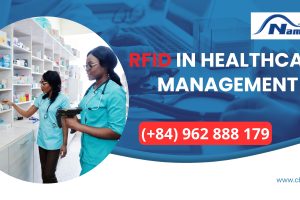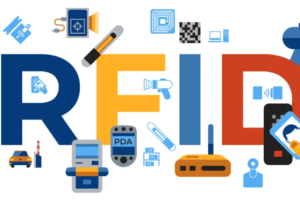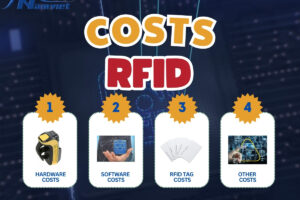Integrating RFID into Healthcare.
1. Description:
- RFID Chips The global radio frequency identification (RFID) market for healthcare is expected to skyrocket to a market worth nearly $4.9 billion by 2022.
- What’s Behind the Explosive Growth: The Value and Efficiency of RFID Technology
- RFID technology promises to bring to healthcare organizations and the added level of security
- and safety it promises to bring to patients.
 RFID represents a broad category that includes many types of smart labels.
RFID represents a broad category that includes many types of smart labels.- According to Marsha Frydrychowski, who leads marketing efforts for label manufacturer Resource Label Group.
- This technology offers limitless applications for precision.
- As hospitals, labs, and entire supply chains adopt RFID technology, they become smarter.
- They can track and trace individual blood samples or pallets of medications. They have real-time visibility into inventory.
- They can monitor the temperature of heat-sensitive medications throughout the supply chain.
- Finally, smart labeling provides another layer of visibility and efficiency.
- ultimately patient safety for the healthcare industry.
2. Applications:
- RFID tags can drive value for hospitals through diagnostic testing, sample movement, and pharmaceuticals.
- Medication preparation and patient care.
- can benefit the entire healthcare industry.
- Every healthcare organization from lab diagnostics to primary care service offices to the pharmaceutical supply chain can benefit from end-to-end traceability.
- Improved productivity and better inventory management.”
3. Benefits:
- RFID chips could also address the serious problem of medical errors.
- According to a recent study by the Mayo Clinic, they represent the third leading cause of death in the U.S. Here, RFID could bring greater accuracy to the process.
- Smart label technology tracks and monitors pharmaceuticals.
- Track blood samples throughout a hospital can ensure that every patient receives the right diagnosis and the right medication, without fail.
- Each RFID tag has a unique identification number, which is assigned to a specific product and entered into the hospital’s database, making it difficult to duplicate.
- And because some RFID tags can be read as fast as 700 products per second, hospitals will achieve accuracy without sacrificing productivity. efficiency.
- When all drugs are attached with RFID tags, nurses or doctors can quickly read the tags, verifying the authenticity of the product.
- determine whether it is distributed to the right patient.
- In addition to the main goal of preventing patient harm.
- And secure RFID authentication can also combat counterfeit drugs.
4. Advantages of Integrating RFID into Healthcare:
- bringing tight control in hospital management.
- RFID chips help ensure absolute information security.
- Optimizing control
My name is Le Nam Viet, currently FOUNDER & CEO of Nam Viet IT Company, I graduated from Ho Chi Minh Polytechnic University. I have more than 3 years of experience providing RFID chip technology solutions, RFID scanners, barcode labels and barcode readers. It’s a pleasure to share my knowledge with readers.



 Tiếng Việt
Tiếng Việt







